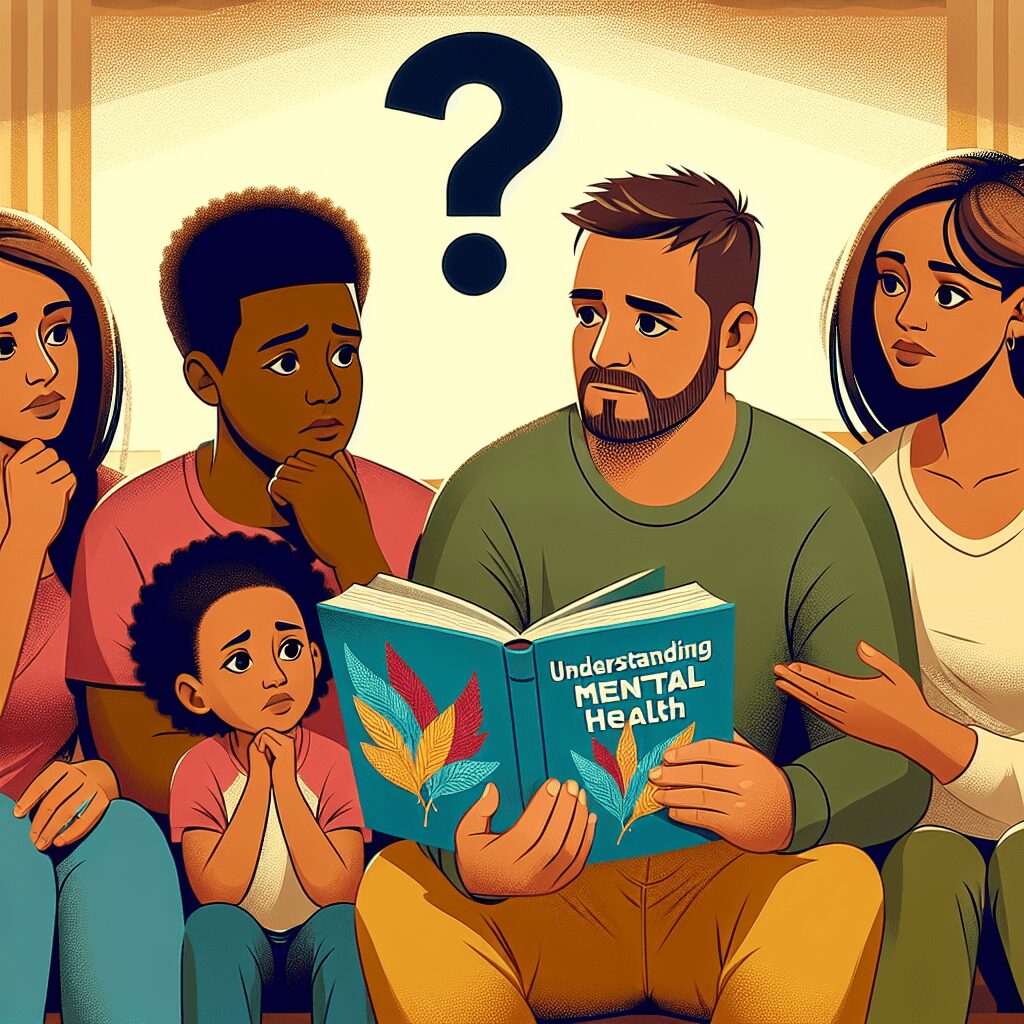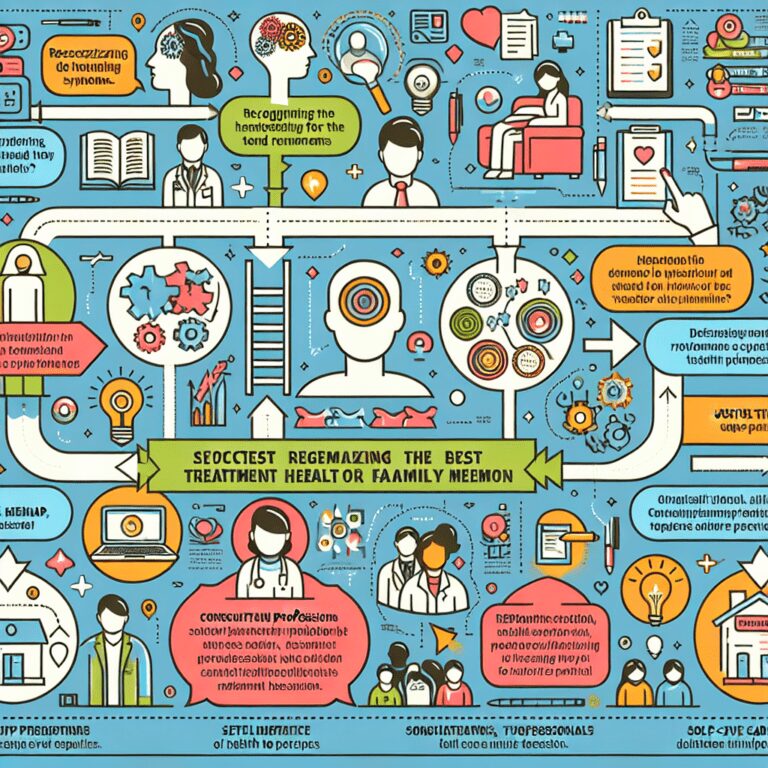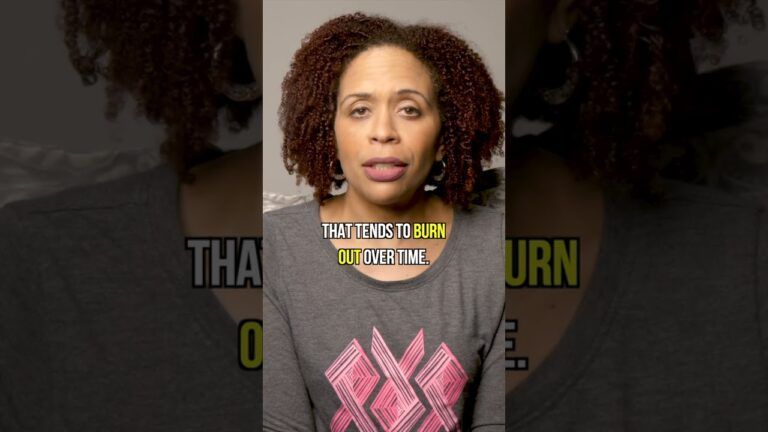
Is Your Family Ready for Counseling? Key Signs to Look For
Life can present us with a multitude of challenges, and sometimes those challenges infiltrate the very fabric of our families. Relationships amongst family members are often complex, and it’s not uncommon for conflicts and communication breakdowns to occur. If you’ve found yourself wondering whether it might be appropriate to seek counseling for your family dynamics, you’re not alone. In this extensive guide, we will explore the key signs that indicate your family could benefit from professional counseling.
1. Constant Conflict and Arguments
One of the most telling signs that your family may benefit from counseling is if you find that arguments are frequent and seem to occur over the smallest issues. When members of the family can’t seem to engage in calm and constructive discussions, it is an indication that underlying issues may need to be addressed.
Conflict is natural in any family; however, if resolving disagreements consistently escalates to shouting matches or if members begin to shut down and withdraw, it might be time to seek help. Constant conflict can take a toll on each family member’s mental health, leading to stress, anxiety, and even physical health issues over time. Counselors can help families learn effective communication strategies that foster respect and understanding.
2. Changes in Behavior
Another important sign to be aware of is noticeable changes in behavior among family members. This can include mood swings, increased irritability, withdrawal from family interactions, or even unexpected outbursts. If you catch yourself or loved ones behaving in ways that are uncharacteristic, it’s essential to pay attention.
Changes in behavior often serve as indicators of deeper emotional distress. For children, these changes might manifest as poor performance in school, loss of interest in activities they once enjoyed, or even changes in sleep and appetite patterns. For adults, it could look like increased anxiety, depression, or feelings of hopelessness. A trained counselor can provide individual and family therapy to explore these changes and work towards healthier coping mechanisms.
3. Communication Breakdown
Healthy communication is the cornerstone of any relationship, particularly within families. If you notice that communication between family members has broken down and that conversations either result in misunderstandings or are completely avoided, it’s a key sign that counseling may be necessary.
In families that are suffering from a communication breakdown, members may resort to passive-aggressive remarks, stonewalling, or even yelling. Over time, these habits can create a toxic environment where individuals feel unsafe sharing their thoughts and feelings. A counselor can help your family develop better communication techniques, allowing everyone to express themselves in a healthy and constructive manner.
4. Emotional Distress
If family members are displaying signs of significant emotional distress, such as anxiety, depression, or ongoing feelings of anger, it is crucial to consider the potential benefits of counseling. Prolonged emotional distress can drain family members of their energy and motivation, overshadowing daily life.
It’s essential to recognize that emotional issues do not only affect the individual but reverberate throughout the family system. Counselors can support the entire family unit in understanding these emotions, offering a space where members can express themselves while learning strategies to cope with their feelings collectively.
5. Difficulty Managing Life Transitions
Life transitions can be particularly challenging for families. Whether it’s a move, a new job, a divorce, the arrival of a new baby, or changes in schooling, major life events can create stress and uncertainty. If you find that your family struggles to adapt positively to these transitions, counseling can be beneficial.
Counselors can help families identify the stressors associated with these changes and develop effective strategies for navigating them. It’ll be easier to communicate openly, share feelings, and collectively manage the emotions that this uncertainty brings.
6. Secrets and Betrayals
Family secrets or betrayals can create rifts that, if left unaddressed, may lead to long-lasting consequences. If your family is hiding significant information from one another or if someone in the family has betrayed trust, it can create a challenging atmosphere.
Counseling provides a safe space to address these issues openly. With the guidance of a professional, family members can discuss these secrets and betrayals constructively, allowing them to heal and rebuild trust within the family.
7. Overdependence or Isolation
Some family dynamics lead to overdependence, where one member relies too heavily on others for emotional support, decision-making, or self-esteem. Conversely, you might notice certain family members isolating themselves, avoiding interactions, and shutting the rest of the family out. This can create a cycle of enmeshment or alienation that affects the entire family unit.
Counseling can help identify unhealthy patterns and promote a healthier balance between connection and independence. Families can learn to support one another without creating an unhealthy level of dependence or isolation.
8. Considering Divorce or Separation
If parents are contemplating divorce or separation, it’s vital to consider family counseling as an option. While this is never an easy decision, approaching it with professional guidance can help families navigate the emotional fallout and minimize the impact on children.
Addressing feelings of grief, anger, and confusion in counseling can provide the whole family with coping strategies to handle this significant transition. A counselor can help facilitate conversations about future arrangements, communication methods, and ways to foster co-parenting for the children’s well-being.
Conclusion
Recognizing the signs that your family may need counseling can be a vital first step toward healing and improving family dynamics. It’s never too late to seek help, and getting support can lead to positive changes, increased understanding, and stronger relationships. By prioritizing open communication and emotional expression, families can foster a safe and loving environment where everyone feels heard and valued.
In today’s fast-paced world, we often overlook our emotional health and well-being. Remember, seeking help is a sign of strength, not weakness. If you resonate with any of these signs, it may be time to explore counseling options. Investing in your family’s emotional health can lead to a more nurturing home environment for everyone involved.
FAQs
1. How do I find a family counselor?
Finding a family counselor involves a few steps. Start by searching online for licensed psychologists or therapists in your area, asking for recommendations from friends or family, or consulting your primary care physician for referrals. Look for professionals who specialize in family therapy and check their credentials and reviews.
2. How many counseling sessions will we need?
The number of sessions needed varies considerably by family and the issues being addressed. Some families may see improvements in just a few sessions, while others may need ongoing support. A counselor can discuss what to expect based on your family’s specific circumstances.
3. Is family counseling only for serious issues?
Not at all! Family counseling can be beneficial for a wide range of issues, from serious conflicts to minor communication troubles. It can also serve as a preventative measure to strengthen family bonds and improve relationships.
4. What happens during a family counseling session?
During a family counseling session, a therapist typically guides discussions and activities aimed at fostering open communication among family members. The counselor helps facilitate dialogue, ensuring that every voice is heard and understood.
5. Is our information kept confidential?
Yes, family counselors are bound by confidentiality laws and ethics. They will keep your family’s discussions private, although there may be exceptions in cases of safety concerns or legal obligations.
Instantly Access Your Free Children’s Books Here! (https://payhip.com/BlueCherryStore) – Disclaimer: As an Amazon Associate, I earn from qualifying purchases, I may earn a commission from qualifying purchases as an affiliate. Please note that I only recommend products I believe will provide value to my readers. (M)







